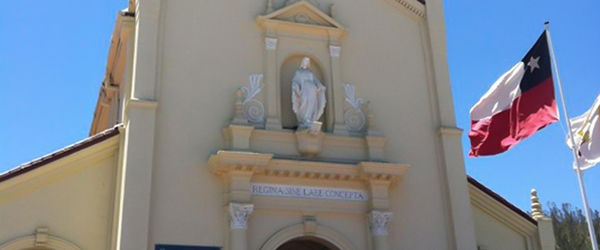Because religious intolerance disproportionately affects women worldwide, the church should enter into "unlikely alliances" with women's groups to make the case that such intolerance should be curbed, said a speaker at a Sept. 12 forum."International religious freedom has a face, and it is the face of women," said Maryann Cusimano Love, an associate professor of international relations at The Catholic University of America in Washington.She made the comments during a panel discussion on what the Catholic Church can do to defend religious freedom abroad at the forum, "International Religious Freedom: An Imperative for Peace and the Common Good," on the university's campus.The event was co-sponsored by the U.S. Conference of Catholic Bishops; the university and the university's Institute for Policy Research and Catholic Studies; and Catholic Relief Services, which is the U.S. bishops' overseas relief and development agency. Church leaders and others came together to discuss religious freedom issues in different regions and countries, including the Middle East, Africa and Cuba.Women are more religious than men, so attacks on religious freedom affect women more than they do men, said Cusimano Love. About 70 percent of refugees and internally displaced peoples, often on the move because of religious repression where they live, are women and children, she added.Women and children are also harmed more, she argued, when groups block the delivery of aid by such organizations as CRS and Caritas Internationalis."Jesus reached out" to those who were "not exactly people of like mind," Cusimano Love said, calling on the church to do the same. Acknowledging there are those who disagree with the church on what she called "pelvic and sexual issues," she said the church should "make the unexpected choice to (reach out to) people who are not like us" in "an area where we have common ground."Rather than exchange rhetorical salvos — "war on religious freedom" on one side, "war on women" on the other — recognize that "it's the same war," Cusimano Love said. "Religious freedom is violated, and women suffer."Panelist John Carr, now a resident fellow at Harvard University's Institute of Politics, spoke of the first effort at religious freedom in which he was involved when working for the U.S. bishops.Skeptical that a bishops' statement on religious freedom in Eastern Europe under the Soviets would change things, Carr said he was told, "If the Catholic Church stands up, it would change." The statement mentioned two jailed Lithuanian priests; later, when visiting Lithuania, he met them both."Because the Catholic Church in the United States and around the world had spoken up, these priests had been freed and were able to practice their faith and their ministry," said Carr, who retired in August after a long tenure as director of the U.S. bishops' domestic and international policy programs.Rather than exchange rhetorical salvos — "war on religious freedom" on one side, "war on women" on the other — recognize that "it's the same war. Religious freedom is violated, and women suffer."Archbishop Thomas G. Wenski of Miami, in a question-and-answer period following the panel discussion, suggested that the struggle over religious freedom is "a product of the cultural wars — a block to their (women's) emancipation as it were," on such issues as abortion and same-sex marriage. "I think they're already on the other side," he said."There's a reason I call them unlikely alliances," Cusimano Love replied. "Can we find an area of common ground, and not cast aspersions?" She added, "In some cases, it's going to be mission impossible," but it will be difficult to forge a consensus "with only 50 percent" of the population sharing the same view.In his introductory address to the forum, Cardinal Timothy M. Dolan of New York said, "We come to this event with a genuine sense of urgency. Yesterday's events in Libya and Egypt point to what really is at stake. Many need to be respectful of other religious traditions at the same time that we unequivocally proclaim that violence — violence in the name of religion — is the ultimate oxymoron."He was referring to the Sept. 12 killing of four Americans, including J. Christopher Stevens, the U.S. ambassador to Libya, amid a wave of violent anti-American protests throughout the Middle East seemingly stoked by the viral release of a short film, "Innocence of Muslims," which many Muslims say contains offensive characterizations of Mohammed, the founder of Islam.Cardinal Dolan referred to last year's Christmas Day attacks in Nigeria that killed 32 people, and lamented the dangers faced by Archbishop Ignatius Kaigama of Jos, Nigeria, president of Nigeria's bishops' conference. "I can't help but sense his deep anxiety as he daily watches his Catholic flock under attack, and as his own life is in peril," the cardinal said.Archbishop John Onaiyaken of Abuja, Nigeria, in a separate panel presentation on religious freedom in Nigeria, said that most violence is committed in the Muslim-majority north. Boko Haram, an organization cited as being responsible for many such attacks in the North, is composed of "criminals" and should not be branded as a terrorist group, Archbishop Onaiyaken said, explaining that would do more harm than good.Nigerian Muslims in the north were a caliphate for 80 years before Britain took control of the country, he said. The English treated Muslims as a "political elite," a sense Muslims have retained over the half-century of the nation's independence.Dialogue and joint works help defuse tension, but Christians and Muslims — each faith has about 80 million adherents in Nigeria — need to weed out the "mad dogs" on each side who fuel hate, the archbishop said.There is Christian-Muslim intermarriage in Nigeria, often without consequences. "My sister is married to a Muslim. My father was not too happy about that," he noted. "I baptized my nephews. Their father was not too happy about it.""We have not exploded. We should be congratulated for that," Archbishop Onaiyaken said. "The government is weak, but we are not a failed state."—CNS

